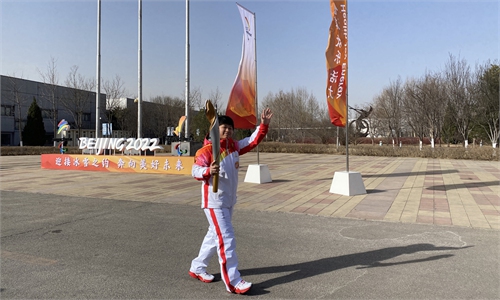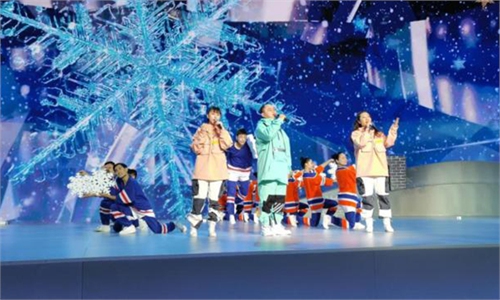Global officials, scholars call for more inclusive society for persons with disabilities
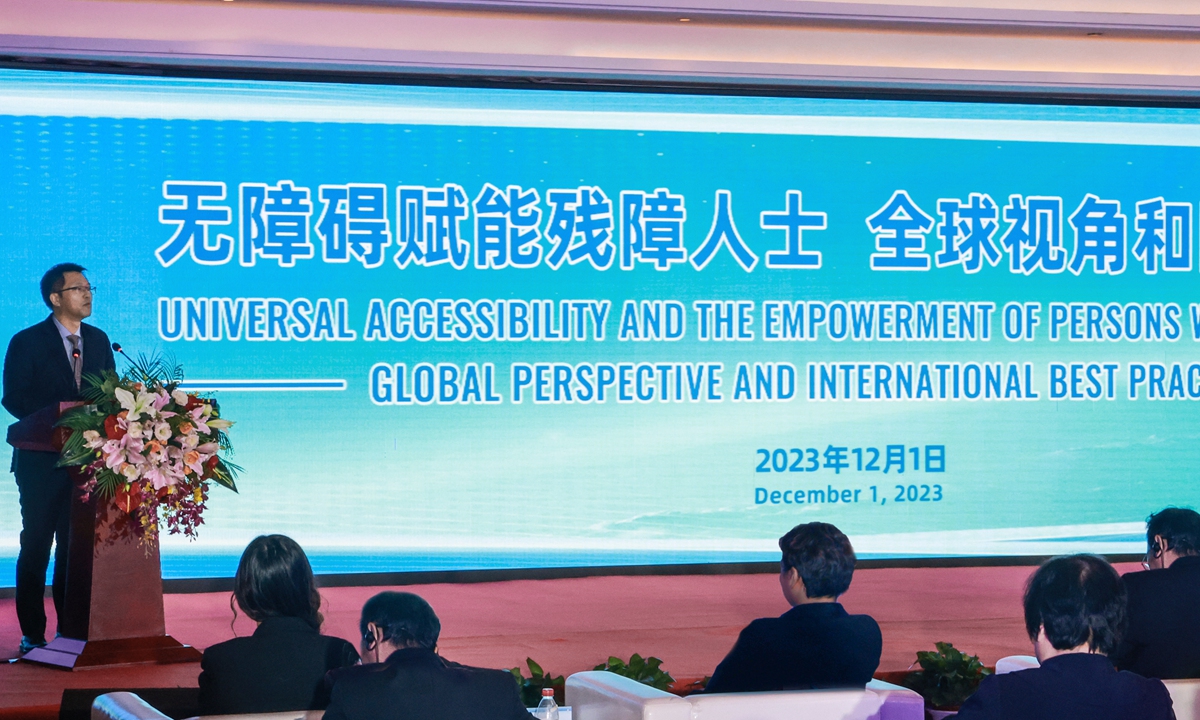
Photo: Courtesy of Communication University of China
UNESCO officials and representatives from more than ten countries share experiences and explore ways to enhance social inclusiveness for persons with disabilities at a seminar jointly hosted by Communication University of China (CUC) and UNESCO held in Beijing on Friday.
Either on-site or through video, officials and scholars from China, France, Mongolia and Malaysia attended the seminar and discussed ways to promote information accessibility and empowerment of the persons with disabilities.
Titled: "Constructing Disability Inclusive Societies: Experiences from China, Mongolia and Indonesia," the seminar intended to build a platform for exchange and cooperation to gather international wisdom, promote equal rights to information, and jointly formulate a global development framework for constructing a digitally inclusive society of "equality, integration and sharing" on the occasion of the 32nd International Day of Persons with Disabilities.
Prof. Shahbaz Khan, director of UNESCO Regional Office for East Asia, Zuo Feng, vice-chairman and secretary-general of the China Foundation for Human Rights Development, You Liang, vice president of Executive Board of China Disabled Persons' Federation, and Prof. Liao Xiangzhong, secretary of the Party Committee of CUC and honorary president of the Research Institute on Information and Communication Accessibility (RIICA) of CUC, attended the event and delivered speeches respectively.
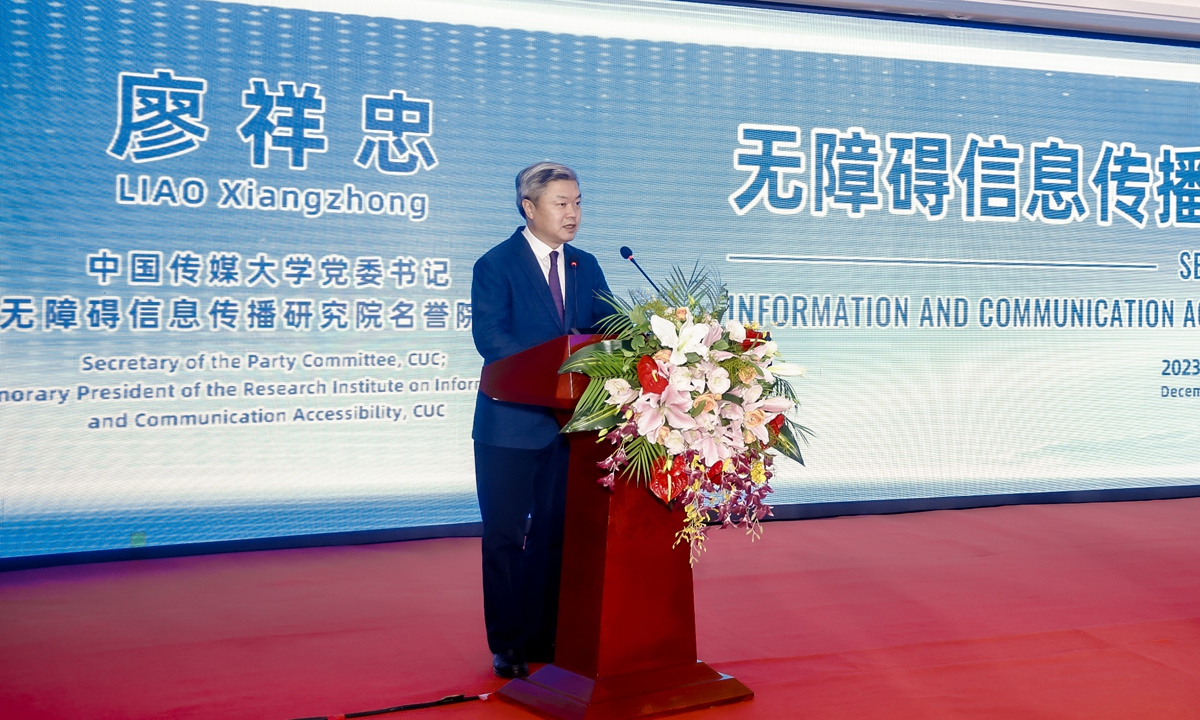
Prof. Liao Xiangzhong, secretary of the Party Committee of Communication University of China (CUC) Photo: Courtesy of CUC
Prof. Liao Xiangzhong pointed out that over the years, CUC has taken advantage of its expertise to conduct a deep dive into information and communication accessibility, promoting the maximization of rights and interests of persons with disabilities through solid research and practice achievements, which has met their increasing spiritual as well as cultural needs, and further enhanced their sense of achievement, well-being, and security.
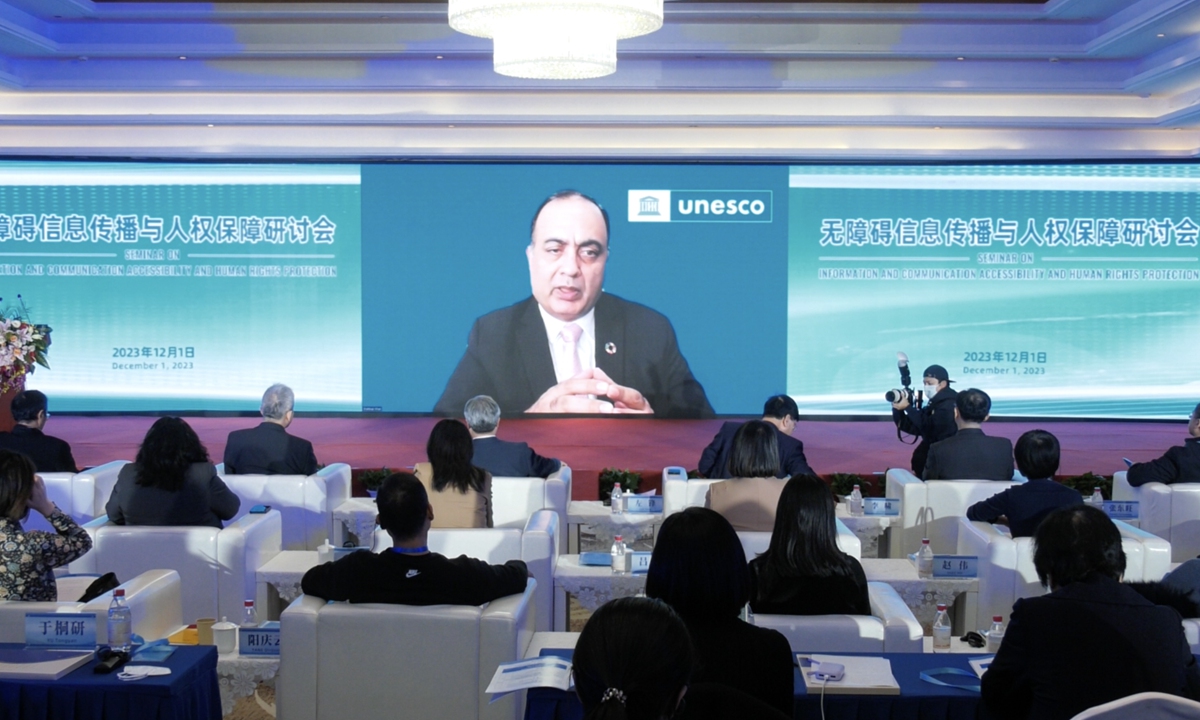
Prof. Shahbaz Khan, director of UNESCO Regional Office for East Asia Photo: Courtesy of Communication University of China
Prof. Shahbaz Khan said in his video speech that UNESCO, through its Information for All Programme, places universal access to information at the forefront of building digital societies. He said the seminar provides a valuable platform, and he hopes the discussions at the seminar will inspire us to build a more equitable and inclusive digital future, where no individual or community is marginalized from enjoying the vast possibilities of the digital age.

Zuo Feng, vice-chairman and secretary-general of the China Foundation for Human Rights Development Photo: Courtesy of Communication University of China
Zuo Feng said in recent years, China has comprehensively pushed forward the construction of information accessibility, enhanced the supply of information accessibility terminal products, and advanced the technological innovation and promotion of accessible products and services. He said the country has also promoted the dynamic integration of informatization and accessible environments, and strengthened the construction of the Braille and sign language disciplines as well as the talent cultivation. Efforts have also been made to eliminate information divide and promote social inclusiveness, and the protection of rights and interests of specific groups such as persons with disabilities has been improving. He said these efforts have become vivid examples of the progress and development of China's human rights endeavors and have won wide acclaim from the international community.
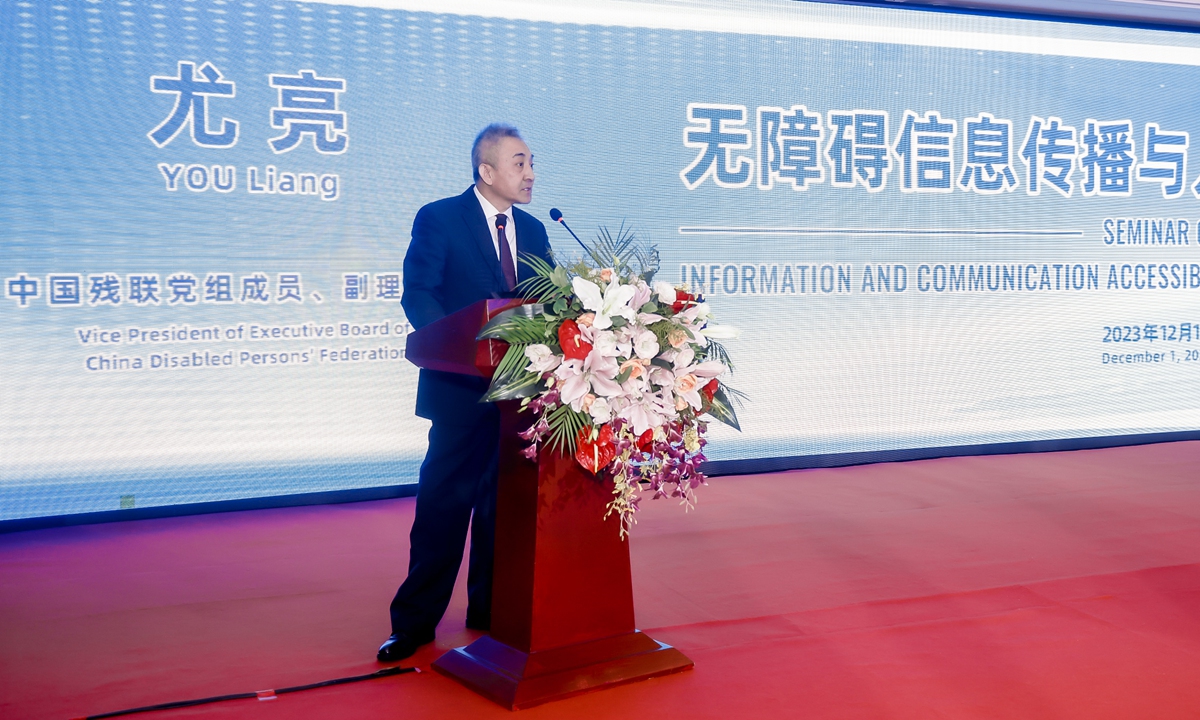
You Liang, vice president of Executive Board of China Disabled Persons' Federation Photo: Courtesy of Communication University of China
You Liang put forward suggestions for promoting the construction of information and communication accessibility: relevant regulations and standards on information accessibility should be further improved, and a sound and long-term working mechanism for promoting information accessibility should be established. Besides, policy support should be increased, and publicity and international exchange and cooperation should be further strengthened.
At the seminar, Prof. Wu Weihua from RIICA of CUC, presented the experiencing project of "Guangming Museum." This project pioneered the development of a combination of barrier-free perception (hearing, smelling, touching, and feeling) and a digital museum model. It relies on multiform content products, such as barrier-free NFC activation of museum information, audio tours, touchable exhibits, volunteers' interaction manuals and online cloud exhibition halls, to create a barrier-free museum tour experience for visually impaired groups. Wu said the "Guangming Museum" responds to the concepts of cultural empowerment, information empowerment and technological accessibility advocated by UNESCO with barrier-free communication practices, providing a Chinese solution to the innovative development of accessible museums.
The seminar is the first time for Chinese universities to cooperate with UNESCO to conduct global exchanges on the theory and practice of information accessibility. It aims at building a high-end platform to promote global information accessibility and protect human rights.
This is the first seminar jointly organized by CUC and UNESCO, and the event will be held on an annual basis in the future. Fu Haizheng, executive director of RIICA of CUC, announced the theme of 2024 CUC-UNESCO Conference - "Accessible Information Communication and Digital Literacy."
Global Times
